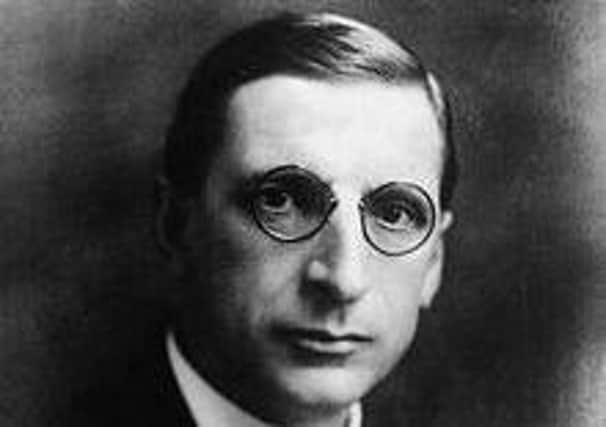Republicans demand soft Brexit – but revere hardline separatists


I have two comments to make.
Firstly, the BBC and British media will always portray the foreign EU negotiators in glowing terms. Michel Barnier, Tusk et al., are beacons of reason and sense, while the UK negotiators are almost always presented as stupid and inept.
In the event the SNP wins Scottish independence, and the foreign London negotiators play tough like Barnier, will they portray the SNP as bumbling and London as sensible and steadfast?
Advertisement
Hide AdAdvertisement
Hide Ad

Of course not; it would be a case of horrible, nasty London, deniers of democracy, putting down the plucky Scots.
How is it we have endured this ridiculous situation of our media fawning over foreign politicians we know nothing about for over four years now?
Secondly, the closeness of 2016 Brexit vote, and the situation in Northern Ireland and Scotland have repeatedly been cited as reasons for a “soft Brexit”, and even as reason to entirely negate Brexit.
Yet let’s look to Ireland’s 1918 General Election. Repeatedly this is cited by republicans as giving total validation for Easter 1916, justification for violence, and a mandate for a total and complete hard separation from Britain.
Advertisement
Hide AdAdvertisement
Hide AdRepublican commentators, historians, and activists tell us that by a “landslide” Sinn Fein won a majority of the seats in Ireland, save but for the north-east of the island held by unionists.
The reality is that republicans won 73 out of the 105 seats (through first past the post), but did so with just 48% of the vote.
Did republicans work for a soft break with London that maintained links and good relations?
Of course not. The republican leadership of the time fought ferociously for the hardest of hard breaks. There was no regard for the 52% who didn’t vote for them.
Advertisement
Hide AdAdvertisement
Hide AdFurther, there was to be no paying of debts and the leaders would go on to erect trade barriers which only impoverished Ireland.
Republican commentators, historians, and activists clamour for a “soft Brexit”, yet they revere and celebrate an Irish history that involved the hardest of hard breaks.
There was no compromising or meeting in the middle. In 1918 De Valera described unionists as a “rock in the road” and “we must if necessary blast it out of our path”.
In that same year De Valera also argued for the expulsion of unionists from Ireland.
How is it that we allow such doublespeak?
Brian John Spencer, Belfast
Advertisement
Hide AdAdvertisement
Hide Ad________________________
A message from the Editor:
Thank you for reading this story on our website. While I have your attention, I also have an important request to make of you.
With the coronavirus lockdown having a major impact on many of our advertisers — and consequently the revenue we receive — we are more reliant than ever on you taking out a digital subscription.
Advertisement
Hide AdAdvertisement
Hide AdSubscribe to newsletter.co.uk and enjoy unlimited access to the best Northern Ireland and UK news and information online and on our app. With a digital subscription, you can read more than 5 articles, see fewer ads, enjoy faster load times, and get access to exclusive newsletters and content. Visit https://www.newsletter.co.uk/subscriptions now to sign up.
Our journalism costs money and we rely on advertising, print and digital revenues to help to support them. By supporting us, we are able to support you in providing trusted, fact-checked content for this website.
Alistair Bushe
Editor